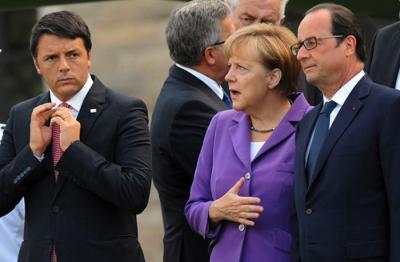EU leaders agree to relocate 40,000 migrants

ROME – Much to Italian Prime Minister Matteo Renzi’s relief, European Union leaders have agreed to relocate 40,000 asylum seekers currently sheltered in Greece and Italy. However, the plan that would mandate the number of people taken in by each country has been rejected.
The leaders agreed after hours of “emotional” debate, going long into Thursday night, that member states would have to agree on how best to distribute the asylum seekers before the end of July, and that the migrants would then be moved by the end of 2016.
The scheme would apply solely to the migrants that have arrived in Italy and Greece, and to those who have a chance of obtaining asylum.
The relocation of these asylum seekers was met with resistance from a number of different countries. French President Francois Hollande remarked, “the discussion was long and there were some moments of tension”.
European Council President Donald Tusk said, at a news conference the previous Friday, that Bulgaria and Hungary would be treated differently, most likely meaning that they would take on less asylum seekers than other states.
The U.K, Ireland and Denmark have also used their opt-out and therefore are also exempt from the scheme.
France, Spain and other countries from central and eastern Europe have put up resistance, however Germany, Sweden and Austria, which take in the most refugees, after Italy and Greece, are in favour of the measure.
“There was generally a very engaged discussion, which I believe is appropriate for this issue, because with the migration question we are facing the biggest challenge for the European Union that I have seen during my time in office,” German Chancellor Angela Merkel remarked.
In the face of resistance, the commission officials have underlined that 40,000 is a miniscule amount of the more than 600,000 asylum seekers who came to Europe in 2014.
During the meetings, Renzi reportedly said to the leaders “If you cannot agree on the 40,000, you aren’t worthy of calling yourselves Europe. If this is your idea of Europe, keep it.”
However, after the 40,000 was agreed upon, Renzi expressed his relief with the end result, saying that it demonstrated that “Europe is joined together for an ideal, not just for economic reasons.”
“Today a united Europe wins, and a selfish Europe loses,” added the Italian Prime Minister.


